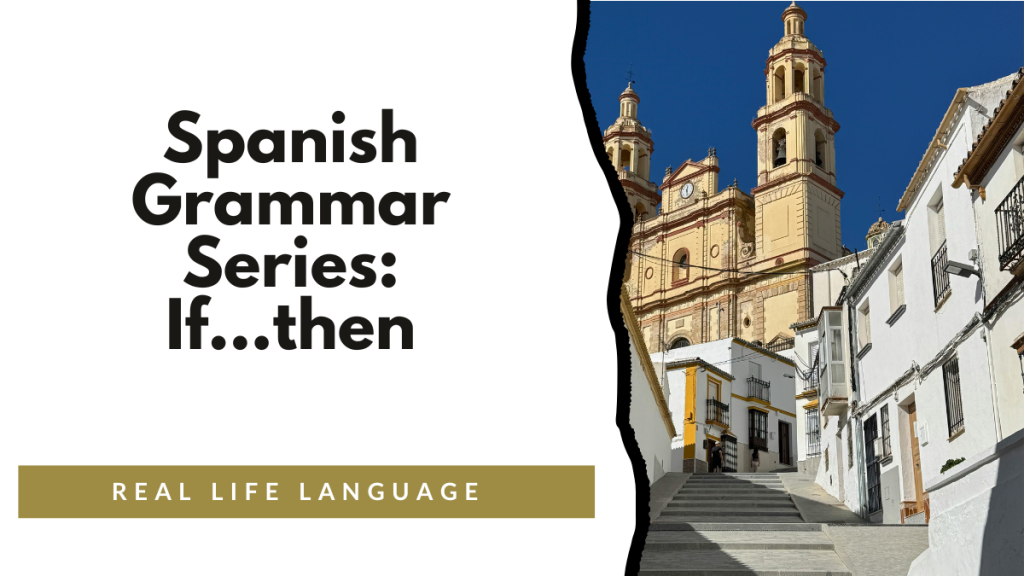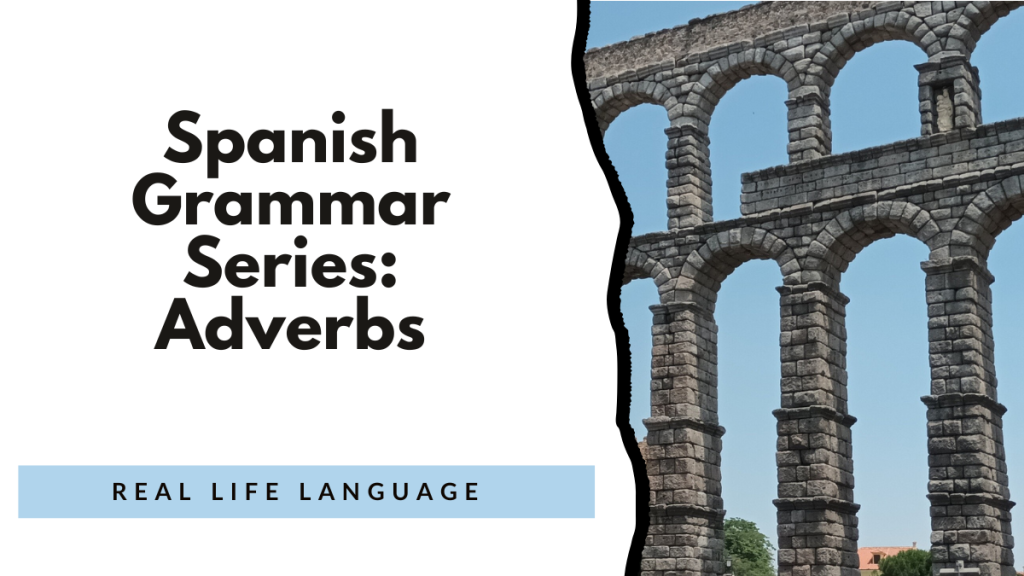(El Futuro Simple / El Futuro de Probabilidad)
The future tense in Spanish is used to express what will happen or what someone will do, making it essential for talking about plans, predictions, and intentions. Beyond its basic meaning, the future tense also serves a second important purpose: expressing probability or conjecture about the present. In this sense, it can communicate what might be true or what must be happening right now.
Understanding both uses of the future tense helps students communicate confidently about upcoming events while also interpreting uncertainty or possibility in the present.
1) What Does the Future Tense Express?
The future tense can express:
1️Simple future actions
→ Mañana estudiaré para el examen. → I will study for the test tomorrow.
2️Predictions or possibilities
→ Habrá mucha gente en la fiesta. → There will be a lot of people at the party.
3️Assumptions or probability in the present
→ Estará en casa ahora. → He must be at home right now.
2) How to Form the Future Tense
The future tense is easy to form because you don’t remove the infinitive — you simply add endings to the entire verb.
Formula:
Infinitive + Future Endings
These endings are the same for -AR, -ER, and -IR verbs.
| Subject | Ending |
| yo | -é |
| tú | -ás |
| él / ella / usted | -á |
| nosotros / nosotras | -emos |
| vosotros / vosotras | -éis |
| ellos / ellas / ustedes | -án |
3) Regular Verb Conjugations
-AR Example: hablar (to speak)
| Subject | Form |
| yo | hablaré |
| tú | hablarás |
| él/ella/Ud. | hablará |
| nosotros | hablaremos |
| vosotros | hablaréis |
| ellos/ellas/Uds. | hablarán |
Yo hablaré con mi profesor. → I will talk to my teacher.
-ER Example: comer (to eat)
| Subject | Form |
| yo | comeré |
| tú | comerás |
| él/ella/Ud. | comerá |
| nosotros | comeremos |
| vosotros | comeréis |
| ellos/ellas/Uds. | comerán |
Comeremos en casa mañana. → We’ll eat at home tomorrow.
-IR Example: vivir (to live)
| Subject | Form |
| yo | viviré |
| tú | vivirás |
| él/ella/Ud. | vivirá |
| nosotros | viviremos |
| vosotros | viviréis |
| ellos/ellas/Uds. | vivirán |
Vivirán en México el próximo año. → They will live in Mexico next year.
4) Irregular Future Stems
Some verbs have irregular stems, but use the same endings as regular verbs.
These changes usually simplify the stem by dropping or changing a letter.
A. Drop the -e from the infinitive ending
| Infinitive | Stem | Example | English |
| poder | podr- | podré | I will be able |
| querer | querr- | querrás | you will want |
| saber | sabr- | sabrá | he/she will know |
| caber | cabr- | cabremos | we will fit |
| haber | habr- | habrá | there will be |
Habrá una fiesta mañana. → There will be a party tomorrow.
B. Replace the vowel with -d
| Infinitive | Stem | Example | English |
| poner | pondr- | pondré | I will put |
| salir | saldr- | saldrás | you will go out |
| tener | tendr- | tendrá | he/she will have |
| valer | valdr- | valdrán | they will be worth |
| venir | vendr- | vendremos | we will come |
Tendré mucho trabajo mañana. → I will have a lot of work tomorrow.
C. Completely Irregular Stems
| Infinitive | Stem | Example | English |
| decir | dir- | diré | I will say / tell |
| hacer | har- | harás | you will do / make |
Te diré la verdad. → I will tell you the truth.
Harán un viaje este verano. → They will take a trip this summer.
5) Summary Chart: Future Tense Endings
| Person | Ending | Example (hablar) |
| yo | -é | hablaré |
| tú | -ás | hablarás |
| él/ella/Ud. | -á | hablará |
| nosotros | -emos | hablaremos |
| vosotros | -éis | hablaréis |
| ellos/ellas/Uds. | -án | hablarán |
Same endings for all verbs — just memorize the irregular stems.
6) Uses of the Future Tense
A. To express what will happen
- Mañana lloverá. → It will rain tomorrow.
- Estudiaremos mucho este fin de semana. → We’ll study a lot this weekend.
B. To express certainty about the future
- Llegarán a las ocho. → They’ll arrive at eight.
- Tendrás éxito algún día. → You will succeed one day.
C. To express probability or conjecture (in the present)
Used to mean “I suppose,” “I wonder,” or “must be.”
- ¿Dónde estará Marta? → Where could Marta be? / I wonder where Marta is.
- Estará en casa. → She must be at home.
- Serán las tres. → It must be three o’clock.
- Tendrán hambre. → They must be hungry.
This “future of probability” use is very common in spoken Spanish.
D. With Time Expressions
Common words and phrases that accompany the future tense:
| Spanish | English |
| mañana | tomorrow |
| pasado mañana | the day after tomorrow |
| pronto | soon |
| esta noche | tonight |
| el próximo (día, mes, año) | next (day, month, year) |
| algún día | someday |
| dentro de (time) | within (time period) |
| más tarde | later |
| en el futuro | in the future |
Algún día seré profesora. → Someday I will be a teacher.
7) Future vs. Ir + a + Infinitive
In Spanish, you can talk about the future using either the future tense or the periphrastic future (ir a + infinitive).
| Use | Formula | Example | English |
| Near future (certain, planned) | ir a + infinitive | Voy a estudiar mañana. | I’m going to study tomorrow. |
| Simple future (broader, more formal) | future tense | Estudiaré mañana. | I will study tomorrow. |
Both are correct — ir a + infinitive is more common in conversation, while the simple future tense is more formal or literary.
8) Practice: Fill in the Blanks
Complete each sentence with the correct form of the future tense.
- Yo __________ (estudiar) español mañana.
- Ellos __________ (salir) a las ocho.
- Nosotros __________ (tener) una prueba el viernes.
- Tú __________ (decir) la verdad, ¿verdad?
- ¿Qué __________ (hacer) ustedes este verano?
- Ella __________ (venir) más tarde.
Answers:
- estudiaré
- saldrán
- tendremos
- dirás
- harán
- vendrá
9) Practice: Express Probability
Translate into Spanish using the future of probability.
- They must be tired.
- I wonder what time it is.
- She must be at the beach.
- He’s probably studying.
Answers:
- Estarán cansados.
- ¿Qué hora será?
- Estará en la playa.
- Estará estudiando.
10) Common Pitfalls & Fixes
| Wrong | Correct | Why |
| Hablaro mañana. | Hablaré mañana. | Add future ending, not just drop -r. |
| Voy estudiar mañana. | Voy a estudiar mañana. | Must use a after ir. |
| Dirásme la verdad. | Me dirás la verdad. | Pronouns go before conjugated verb. |
| Comeráslo. | Lo comerás. | Same rule — pronoun before verb. |
11) Quick Summary Chart: Future Overview
| Concept | Formula / Rule | Example |
| Formation | Infinitive + ending | hablaré, comerás, vivirá |
| Endings | é, ás, á, emos, éis, án | — |
| Irregular stems | podr-, querr-, sabr-, har-, dir-, tendr-, vendr-, pondr-, saldr-, habr- | — |
| Use 1 | What will happen | Iré al cine mañana. |
| Use 2 | Probability / conjecture | Será tarde. |
| Use 3 | Prediction / assumption | Habrá tráfico. |
| Related form | ir a + infinitive = going to | Voy a estudiar. |
Why the Future Tense Matters
The future tense allows you to:
- Talk about plans and goals
- Make predictions and assumptions
- Express certainty and probability
- Use more natural, fluent, and expressive Spanish
Mastering it helps bridge the gap between present communication and talking about what’s to come — a vital skill for proficiency and storytelling.
Building Proficiency for World Language Learners: 100+ High-Interest Activities
Discover over 100 dynamic activities to make world language learning interactive and fun. I wrote this book with some of my favorite activities for educators aiming to build proficiency with high-impact strategies.
Learn more and get your copy here.
5 Weeks of No and Low Prep Fun
Need quick, engaging activities for your class? This free guide includes 25 no-prep and low-prep ideas to save time while keeping students excited about learning.
Download your free copy now.
100s of videos to learn Spanish:

